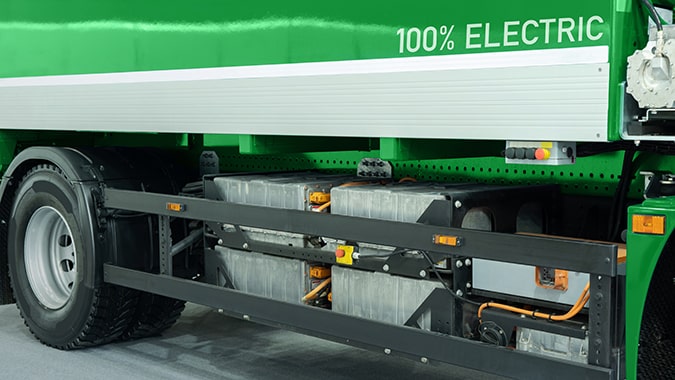Trucking industry organizations are urging legislative leaders to hold hearings this fall on state electric vehicle regulations that are set to be implemented in 2025 without lawmakers’ approval and at a cost of hundreds of millions of dollars to the industry and consumers.
The NJ Motor Truck Association, the Fuel Merchants Association of NJ and the NJ Propane Gas Association sent a letter on Monday to Senate President Nick Scutari and Assembly Speaker Craig Coughlin requesting a swift legislative response because the state Department of Environmental Protection’s regulations mandating zero-emission tractor trailer sales are set to take effect in 16 months.
“According to the NJEDA the logistics industry contributes 200,000 jobs and $20 billion to the NJ economy ... And trucking is the lynchpin of the logistics industry,” the letter stated. “The cost of complying with these requirements is astronomical, in the hundreds of millions of dollars, virtually all of which will be passed on to NJ consumers in what will become some of the most expensive delivered goods costs in the nation.”
The cost of a new electric Class 8 truck (a tractor trailer) is about three times that of a diesel-powered truck, the letter said. Moreover, EV trucks haul less payload due to the weight of the batteries, and this means more trucks on the road which will require more CDL drivers at a time when the industry is having difficulty filling positions.
“There is also a lack of charging infrastructure,” the letter said. “Part of the lack of charging infrastructure is due to utilities not having enough power to supply heavy vehicle charging and part is the cost of building the charging infrastructure.
“NJ Transit is receiving $100 million to electrify a 130-bus depot in the Meadowlands,” the letter said. This equates to $770,000 per bus charger. And Class 8 trucks weigh more than passenger buses, so they need more power to charge.”
Due to the pending implementation of Advanced Clean Truck (ACT) regulations, which are patterned after California’s rules, truck manufacturers are delivering vehicles to truck dealerships based on a ratio of EV trucks to diesel-powered trucks, depending on whether the state of the truck’s registration has adopted the regulation, the letter said. But due to the interstate nature of trucking, truck companies can domicile in a non-ACT state.
“The regulation will put New Jersey truck dealerships out of business for one very simple reason, their customers do not want these trucks,” the letter said.
It isn’t only tractor trailers that are impacted by ACT. Every vehicle over 8,500 pounds is covered, which includes super duty pickup trucks and contractor vans, which means municipalities and counties, and ultimately taxpayers, will be impacted by ACT.
In adopting ACT for medium and heavy-duty trucks, the DEP has cited legislative authorization pursuant to the New Jersey Air Pollution Control Act’s provisions that were enacted by the Legislature in 1967, the letter said.
The provision in the 2007 Global Warming Response Act that allowed the NJDEP to set “enforceable limits” to achieve greenhouse gas reductions was deleted before final passage, the letter pointed out.
“Respectfully, it’s time for the Legislature to determine what the law is,” the letter said.




